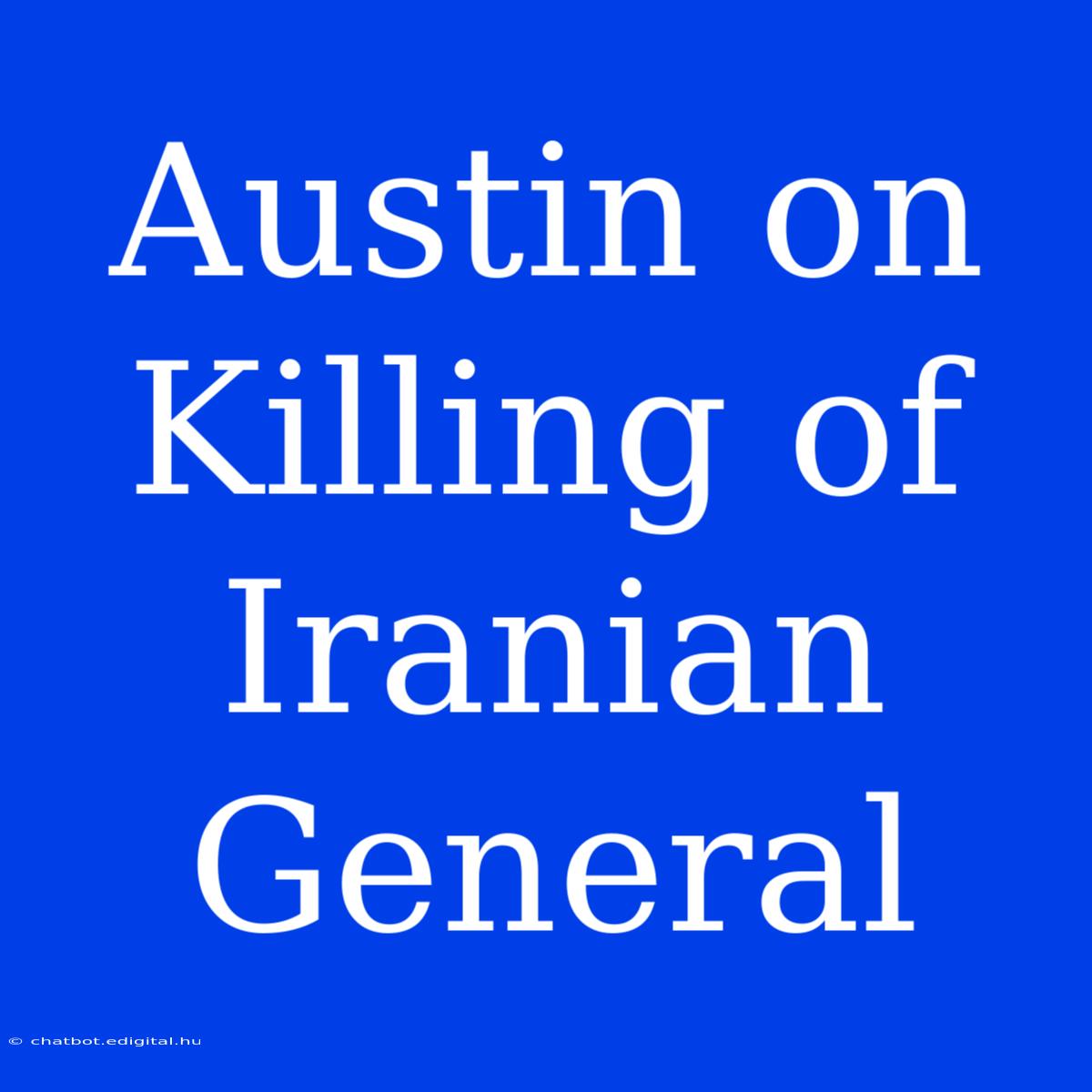Austin on Killing of Iranian General: A Look at the Complex Aftermath
What was the impact of the assassination of Iranian General Qasem Soleimani? The killing of Qasem Soleimani, a pivotal figure in Iran's military and political landscape, set off a chain of events that continue to reverberate across the Middle East. Editor Note: The killing of Iranian General Qasem Soleimani was a significant event with far-reaching consequences. It's crucial to understand the complexities surrounding this event and its ramifications for the region and beyond.
This article aims to offer a comprehensive analysis of the assassination, examining its context, immediate consequences, and lasting implications. This review delves into the key players, their motivations, and the ongoing tensions that continue to define the geopolitical landscape of the Middle East. By exploring the nuances of this event, we can gain a deeper understanding of the delicate balance of power in the region and the potential for future conflict.
Key Takeaways of the Assassination of Qasem Soleimani:
| Aspect | Description |
|---|---|
| Immediate Aftermath: | Tensions escalated between Iran and the United States. |
| Regional Impact: | Increased instability and risk of further conflict in the Middle East. |
| Long-Term Implications: | Potential for a shift in the regional power balance. |
| International Response: | Mixed reactions from different countries. |
The Killing of Qasem Soleimani
The assassination of Qasem Soleimani, the commander of Iran's elite Quds Force, on January 3, 2020, at Baghdad International Airport was a significant event in the Middle East. It triggered a wave of international reactions, with some condemning the action as a breach of international law and others supporting it as a necessary step to counter Iranian aggression.
Context and Background
The United States and Iran have a long and complex history, marked by periods of conflict and cooperation. The assassination of Soleimani was the culmination of years of escalating tensions between the two countries. Soleimani, a highly influential figure in Iran, was seen by the U.S. as a dangerous and destabilizing force in the region. He was blamed for the deaths of hundreds of American soldiers and for supporting various militant groups in the Middle East.
The immediate trigger for the assassination was a series of attacks by Iranian-backed militias on American military bases in Iraq, including the attack on the U.S. embassy in Baghdad in December 2019. The U.S. government, under President Donald Trump, perceived these attacks as a direct threat and responded by ordering the airstrike that killed Soleimani.
Consequences and Impact
The assassination of Soleimani immediately escalated tensions between Iran and the United States. Iran vowed revenge and launched a missile attack on U.S. bases in Iraq, although no American casualties were reported. The event also heightened anxieties in the region, raising fears of a wider conflict.
Regional Implications
The assassination of Soleimani had a profound impact on the regional dynamics in the Middle East. It heightened the already existing tensions between Iran and its adversaries, including Saudi Arabia and Israel. The event also contributed to the instability in Iraq, which had already been grappling with internal political challenges and the rise of sectarian violence.
International Reactions
The assassination of Soleimani sparked a global outcry, with many countries condemning the action as a violation of international law. Some nations, however, expressed support for the U.S. action, citing Soleimani's alleged role in supporting terrorism. The United Nations Security Council, however, failed to adopt a resolution condemning the killing, highlighting the deep divisions within the international community.
The killing of Qasem Soleimani remains a major event in the recent history of the Middle East, highlighting the complex and fragile dynamics of the region. Its long-term implications continue to unfold, with the potential for increased instability, political upheaval, and even further military escalation.

